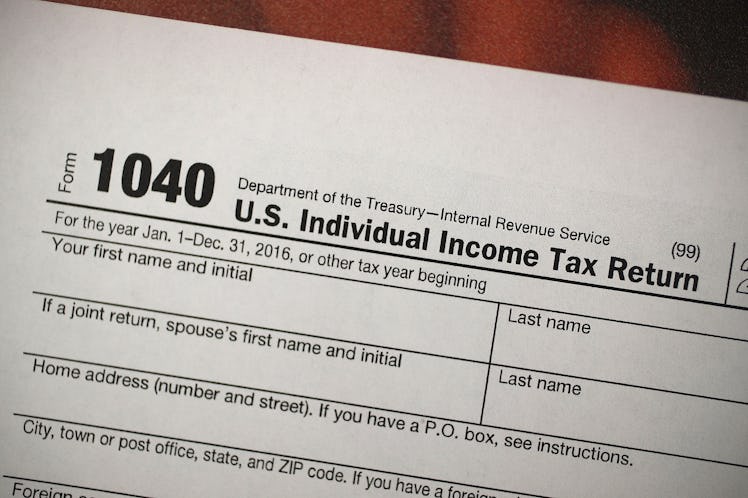
Here's What To Know About Filing Your Own Taxes As A Dependent
While taxes aren't due until Monday, April 15, you might have already started making preparations for filing season after the IRS officially started accepting returns starting on Jan. 28. Depending on your specific situation and where you're employed, there can be a lot of paper work to track down and, in some cases, some questions about your filing status. If this is the first year that you're making an income, you might be wondering: Do you have to file taxes as a dependent? Tax filing requirements depend on a few factors, so here's what you should know.
First of all, I think it's important to note that when someone (like a parent or guardian) claims you as a dependent on their tax form, that doesn't mean they're claiming your income for you and you can automatically get out of filing your own taxes. Instead, they're only claiming an exemption for themselves, which means that you are still responsible for paying your own taxes or filing to getting your own refund if you earned more than the minimum income threshold for the year, which is outlined by IRS filing guidelines.
Even if you don't meet this minimum threshold, anyone who had taxes automatically taken out through their employers sometime during the year is encouraged to submit a tax return, because, let's be real, who wants to leave any potential refunds on the table?
If you're wondering if you can be classified as a dependent, here's what you should know.
According to the IRS, a dependent is basically someone who earns a taxable income but can still be claimed by another taxpayer to potentially claim an exemption. In addition, a dependent is classified as having made taxable income if he or she is at least 19 at the start of the tax year and hasn't paid for more than half of his or her own financial support during the year. Someone who is under 24-years-old and a full-time student at the beginning of the tax year can also qualify. If this applies to you, your parents or legal guardians can opt to claim you as a dependent on their tax form.
For you, filing your own taxes comes down to how much you made at your job. Every year, the Internal Revenue Service shares its income thresholds that can help you determine whether you are required to file a tax return for your earnings. This year, anyone who's under 65 and whose annual income exceeded $12,000 must submit a return, per the IRS. If you made even slightly more than that this year, you're required to file.
So, what if your income is under that amount? You're not required to submit a return, but someone can still claim you as a dependent and file your earnings along with their own income. As I mentioned earlier, I'd still recommend filing your return if your employer took out any money from your paycheck during the year so that you can claim any refunds.
Just remember that one person can claim you as a dependent per year, so make sure that your parents take turns if they're planning to claim you as a dependent and hoping to get a write-off.
Again, the tax filing deadline is a little less than a month away on April 15, so I'd double-check your W-2 Form now to see if you need to file and start putting aside any documents you might need for that. Who knows, there's a chance that you might be looking at getting some money back this year.